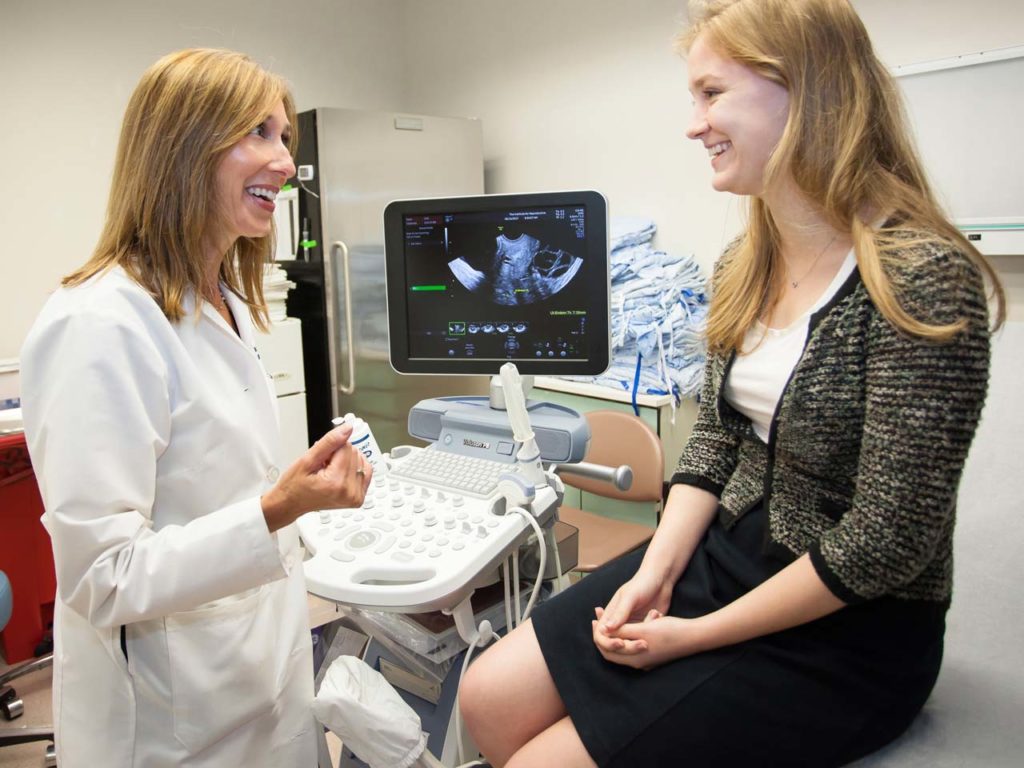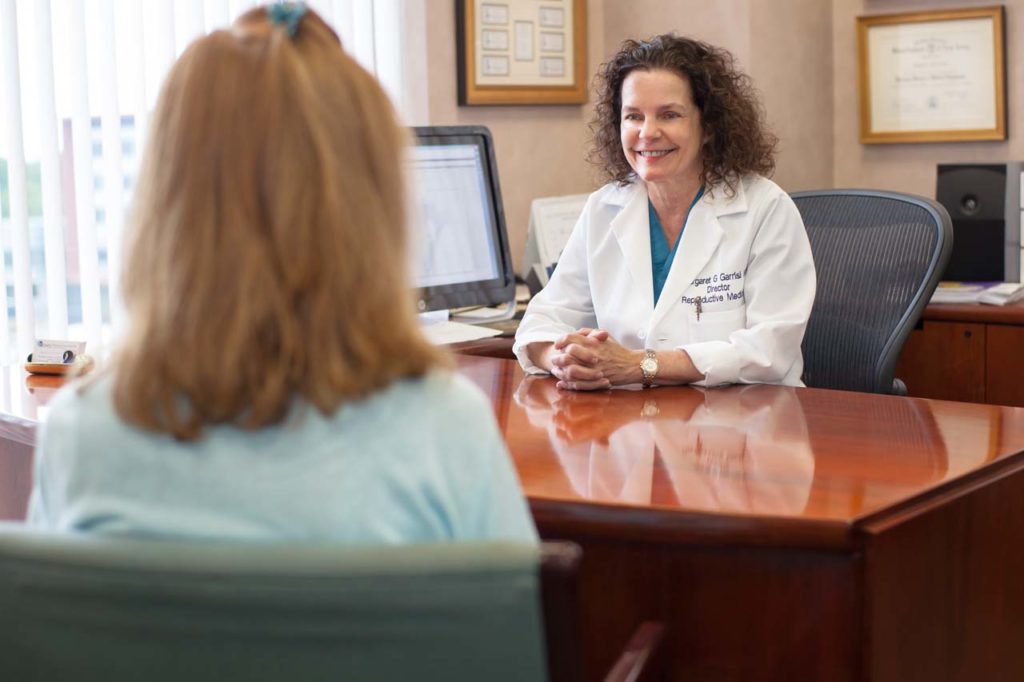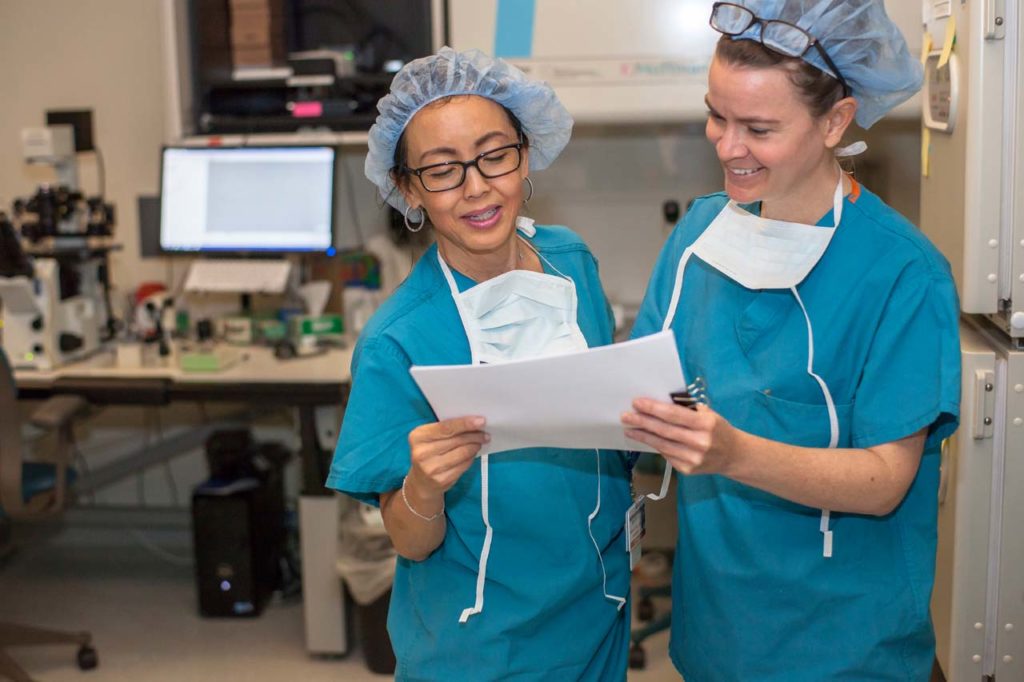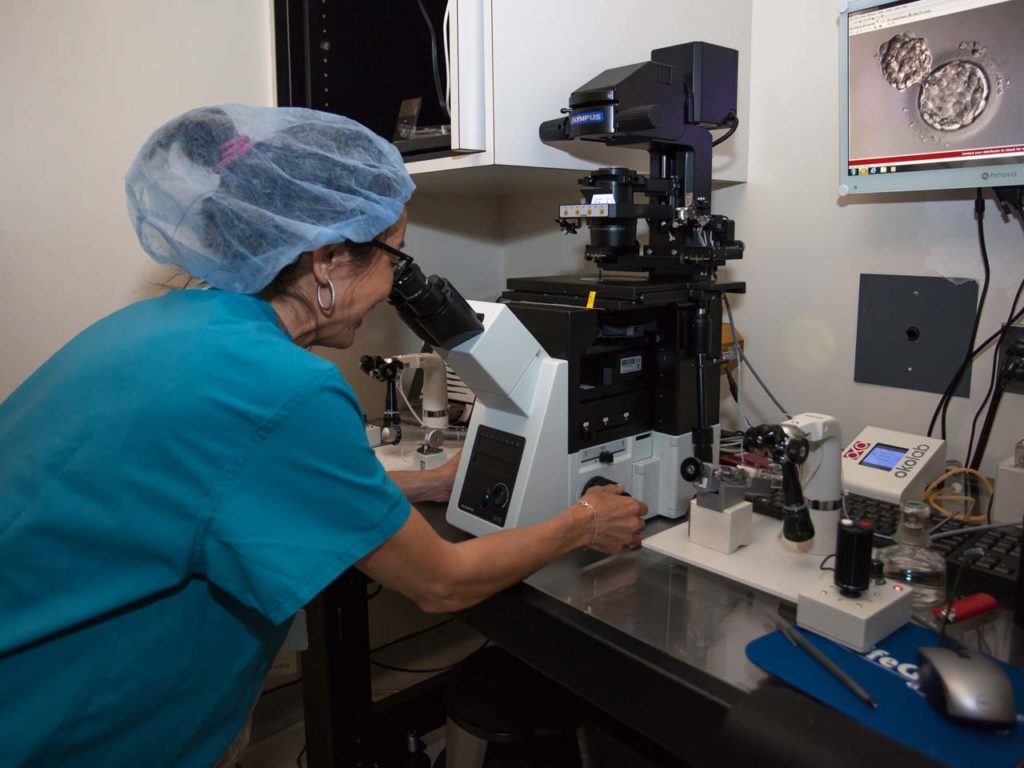advice for concerned individuals and couples from an m.d. at the Institute for Reproductive Medicine and Science at Saint Barnabas
by Lindsey Blair • Photos By Robert Nuzzie
Patients confronting infertility issues face a myriad of tests, medical jargon, and emotional issues, and perhaps equally daunting, having to decide whom to trust with their care. The last factor is one the Institute for Reproductive Medicine and Science (IRMS) at Saint Barnabas fully understands. By delivering a unique trifecta—cutting-edge techniques, high success rates for pregnancy, and a nurturing and supportive environment— it makes a point of treating patients not as charts, but as human beings.

According to Dr. Natalie Cekleniak, the practice director at IRMS, the emotional component of such care is every bit as important as the medical aspects.
“We’re not huge, because we don’t want to be,” said Cekleniak, describing how IRMS is distinct from many other reproductive centers. “We want to be able to have a person come in, get to know them on a first-name basis, and become familiar with their day-to-day story. Patients can call me every day if they want. We are with them on an emotional level.”
Cekleniak, who completed her residency in obstetrics and gynecology at Pennsylvania Hospital in Philadelphia and a fellowship in reproductive endocrinology and infertility at Brigham and Women’s Hospital in Boston, joined the IRMS team in 2000.
“During my third year as an OB/GYN resident, I was introduced to reproductive endocrinology, and I was sold,” she said. “I loved the focus on building families. I come from a really close family—it’s the thing that gets me through life.”
Cekleniak and a team of other physicians were handpicked to start IRMS, considered one of the nation’s leading fertility centers. When the center went private in 2004, the affiliate hospital offered Cekleniak and the team the chance to run it. They eagerly accepted.
“This is like my baby,” Cekleniak said. “It’s one thing when you’re an employee and you want to do your best as a practitioner and treat your patients well. But when it went private, we knew what we wanted to create—how we wanted to make this the best infertility center in New Jersey.”

IRMS, which has eight locations in the state, offers treatment services that range from fertility medicines to egg freezing to IVF (in vitro fertilization) to IUI (intrauterine insemination), along with 24/7 access to physicians, nurses, and a psychologist. Its staff members have been repeatedly honored as “Top Doctors” by NJ Monthly, Inside Jersey, and New York magazine—not least for their sensitivity to infertility being a private issue—one with an associated stigma. Because of this, the center’s website features a blog written for patients by IRMS physicians—filled with material addressing worries and concerns, as well as news on the latest advancements in the field.
“We wanted to give people an easy entry into infertility by reassuring them that ‘Yes, you really do need to see us. You have a reason to see us. You’re not being crazy, and it’s not too early,’ ” Cekleniak said of the blog. “We know what our patients need to hear. We know what they need to be educated about, sometimes even before they do.”
Physicians at IRMS generally recommend a visit if a couple under the age of 34 has been trying to conceive for a year without success, and likewise for a couple aged 34 or older who has been trying for six months.
“We always tell people, ‘We know it’s intimidating, but you have to come in and have an evaluation, and you may be surprised that it’s a lot more doable than you might think,’ ” she said. “Not everyone needs IVF. Some women may need a less invasive intervention that is less expensive, such as a fertility medication.”
Specialists are not just for individuals looking to start a family immediately, either. Studies show that women today are waiting longer to conceive, which often doesn’t bode well for egg quality or quantity (both decrease with age). But major advancements in the past decade in egg freezing have opened the door for fertility preservation. IRMS has particular expertise in this area, and was featured in This Is Birth with Lisa Ling on CNN to discuss the subject.
“Yes, IRMS is targeting the infertile population, but we’re also targeting young, healthy women,” said Cekleniak. “So they won’t have to go through the troubles that some women in their later thirties face.”
The M.D., who has been in the reproductive field for more than a decade, has seen plenty of advancements. Egg preservation is one such improvement; another is the growing efficiency of IVF.

“The changes we have in success rates on a perembryo basis—meaning culture systems for embryos—have been remarkable, giving us better embryo implantation rates, which means greater pregnancy rates,” she explained. “The pre-implantation genetic testing of embryos as well—where we actually sample an embryo and do genetic testing on it to look at all of its chromosomes—is comprehensive now and very accurate. All of this leads to IVF being more cost-effective, safer for patients, and providing better outcomes.”

Physicians at IRMS generally recommend a visit if a couple under the age of 34 has been trying to conceive for a year without success, and likewise for a couple aged 34 or older who has been trying for six months.
Cekleniak is at pains to debunk infertility myths in her practice. One, in particular, she felt the need to set straight: unexplained infertility.
“If you’re someone who is wondering why you’re not getting pregnant, and you’re a young, healthy couple, and your OB/GYN does a few tests and everything comes back normal, that does not mean that you are a mystery case or that nothing is wrong,” she said. “It is hard to test the quality of eggs, and you can have issues with ovarian reserve that do not come up on tests. It’s not right for your OB/GYN to simply tell you to ‘Relax’ or to ‘Keep trying and it will happen.’ Instead, come in and make an appointment for an evaluation.”

The Institute for Reproductive Medicine and Science at Saint Barnabas
94 Old Short Hills Road, Livingston
973.322.8286 / sbivf.com
